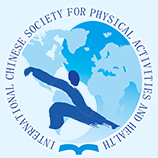Document Type
Abstract
Keywords
FIT Taijipao, heart rate, exercise prescription
Publication Date
8-1-2022
Abstract
As an American College of Sports Medicine (ACSM) initiative known as Exercise Is Medicine (EIM) is becoming more and more popular globally, FIT Taijipao has been proposed as a new approach to exercise. FIT Taijipao has been introduced as an individualized and dynamic exercise. The purpose of this study was to examine the effects of FIT Taijipao on Heart Rate (HR) at different speeds including peak (YANG) and minimum (YIN) points every three months across 15 months of continuous FIT Taijipao exercise, concluding with a follow-up retention test to examine the effects of an 18-month detraining. The participant of the case study was recruited in a college-wide mind & health program. A 48-year-old sedentary Asian female volunteered for this pilot longitudinal study. The participant performed FIT Taijipao on a treadmill two to three times per week in the exercise lab. A Polar HR Monitor (M400 + H10 chest unit) was used to record HR data. According to FIT Taijipao guidelines, HR Average per 200m was used for data analysis. The Borg Rating of Perceived Exertion (RPE) scale was used to monitor the participant’s subjective effort and controlled to be no higher than 15. YANG Speed (peak) is attained as RPE reaches 15 or less when HR reaches 145 bpm. The running speed was adjusted according to FIT Taijipao established speed profile. Weekly HR average of YANG (peak) speed decreased by 25.3 bpm (146.3 to 121.0 bpm) after first 3 months of FIT Taijipao; Weekly HR average at the same speed continuously decreased to 117.3, 120.0, 116.0, and 116.3 bpm at 4.5 mph speed. YANG (peak) speed increased gradually from 4.5 mph, to 5.7, 6.0, 6.1, 6.3, and 6.3 mph every three months. After 18 months of detraining, a retention FIT Taijipao test was done to examine the HR change. Weekly HR average at 6.3 mph was 160.6 bpm, and the lap average speed was 5.7 mph when HR was around 145 bpm. The RPE reported was 13. This case study illustrates that regular FIT Taijipao leads to a decreased HR, a useful index for exercise intensity and cardio-respiratory fitness. The participant enjoyed FIT Taijipao, a 40-45 minutes run. FIT Taijipao has a great potential to help general population to gain the benefits of exercise and physical activity without being over stressed.
DOI
https://doi.org/10.18122/ijpah.1.2.34.boisestate
Recommended Citation
Chen, Zhaofei and Guan, Hongwei
(2022)
"The Effects of FIT Taijipao on Heart Rate: A Case Study,"
International Journal of Physical Activity and Health: Vol. 1:
Iss.
2, Article 34.
DOI: https://doi.org/10.18122/ijpah.1.2.34.boisestate
Available at:
https://scholarworks.boisestate.edu/ijpah/vol1/iss2/34
Included in
Exercise Science Commons, Health and Physical Education Commons, Public Health Commons, Sports Studies Commons


